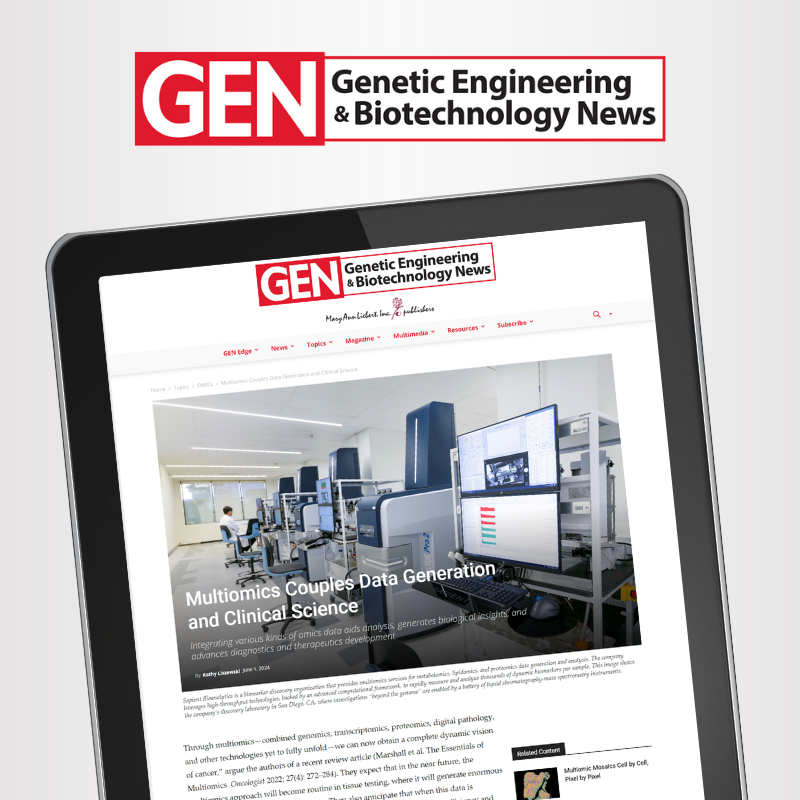Media | June 7, 2024
GEN Feature: “Multiomics Couples Data Generation and Clinical Science”
Get the Resource
Read the ArticleGenetic Engineering & Biotechnology News (GEN) recently profiled Sapient as part of its feature on omics technologies enabling the discovery and implementation of multiomics biomarkers in drug development programs today. As the article mentions, industry experts expect that in the near future multiomics analyses will become routine in tissue testing. We discuss how Sapient’s services are helping to realize this future, faster, in both preclinical and clinical phases. Read an excerpt from the full feature below.
While much of biomarker discovery in the last two decades has focused on genomics, more than 80% of disease risk comes from nongenetic factors, according to Mohit Jain, MD, PhD, founder and CEO, Sapient Bioanalytics. “It’s been said that our zip code is more important than our genetic code,” he says. “A person’s genome is largely static from birth, but disease processes can happen on an ever-changing, dynamic continuum, particularly for chronic illnesses such as heart disease, cancer, neurodegeneration, and other conditions with complex etiologies.”
Jain highlights that multiomic approaches have the power to identify dynamic biomarkers that read out critical factors modulating health, disease, and drug response over time. However, challenges are still being addressed.
“Up until about two years ago, the real challenge was measuring these types of biomarkers with breadth, depth, and scale,” he points out. “This technical challenge is similar to that experienced by genomics when it was progressing from low-throughput Sanger sequencing to massively parallel next-generation sequencing. In the postgenomic space, we need multiomic technologies (such as metabolomics, lipidomics, and proteomics) to robustly analyze thousands of samples at a time in order to discover many, many new biomarkers.”
The company’s scientists set out to do just that by focusing on mass spectrometry. They reengineered both hardware and software to greatly accelerate the speed and scalability of mass spectrometry analyses. “We now can measure thousands of metabolites, lipids, and proteins in a single human biosample very quickly and robustly,” Jain reports, “and we can scale these approaches to tens and hundreds of thousands of biosamples as part of the discovery process.”
